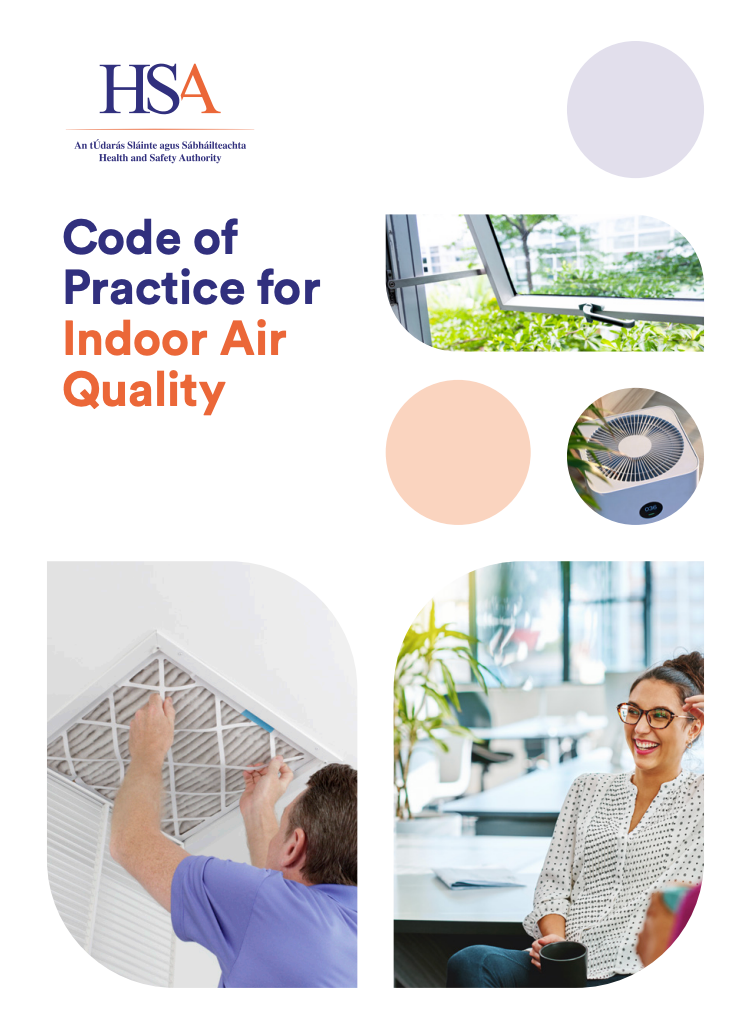From construction sites to commercial bakeries, many workplaces produce large levels of dust, which can lead to a number of repercussions in the future if left unmanaged. As an employer, it is your responsibility to ensure that your workplace is safe for your employees to work in, which is why dust extraction should be at the forefront of your mind.
Not only does this ensure your compliance with the necessary industry standards, but you’ll be looking out for the health of your workers.
Read on as we discuss the causes and effects of dust build-up in certain workplaces, before going on to explore the benefits of dust extraction and why you should consider it as part of your effective dust management.
Poor Dust Control: What Causes Dust Build-Up?
When is Dust Considered Harmful?
Dust is everywhere around us - it’s unavoidable. Naturally, then, all workplace environments will experience levels of dust to some degree. However, there are certain workplaces in particular that will see a significant build-up of dust to the point that it becomes a cause for concern.
This notably includes workplaces that are involved in:
● Construction
● Woodworking
● Textiles
● Baking
● Milling
● Chemical manufacturing
● Metal casting (foundries)
The issue with much of the work carried out in these industries is that it produces and encourages the spread of what is known as respirable dust. Unlike standard dust that is always in the air, respirable dust consists of particles that are so small that, when inhaled, they can reach and pass through the lungs and other organs within the body. Because these particles are so small, they also stay in the air for much longer, making them a risk factor for a prolonged period of time.
Dust is often divided into two categories:
● Organic dust - this comes from living things, such as flour, wood, textiles, grain and poultry (these will often contain fungal spores and microbes, also)
● Inorganic dust - this, instead, comes from stones, chemicals and metals
Dust Build-up in the Workplace
The reasons the aforementioned industries produce so much dust is because of the nature of many of the tasks involved in these commercial workplaces along with the materials they work with.
For example, there is often heavy machinery involved in such large commercial settings, the vibrations of which encourage dust to be released into the air, whilst actions such as drilling, crushing and milling, along with bagging and bulk loading materials also encourage and speed up the release of fine dusts.
If you don’t have adequate or proper dust management solutions in place to control this, then dust levels will gradually increase over time, getting worse the longer they are left unchecked.
When is Dust Extraction Required?
The Health and Safety Executive (HSE) outlines guidance on dust in the workplace, which can be found under the Control of Substances Hazardous to Health (COSHH) regulations. This includes information on workplace exposure limits (WEL) to dust.
Exposure to dust must be controlled to as low as is reasonably practicable, whilst the WELs for dust can be found in the EH40 Workplace exposure limits publication.
In order to check that you are complying with this in your workplace, you are required to monitor dust levels in, allowing you to check the levels of exposure against the set limits. This can be done using a range of equipment, including dust particulate monitors for rooms as well as personal dust monitors.
Upon monitoring your dust levels, if you find that you are over the exposure limit or note that you aren’t controlling exposure to as low as is reasonably practicable, then you’ll want to consider dust extraction.
Methods of Dust Extraction
There are different short-term and long-term solutions that can be utilised when it comes to extracting dust from your workplace.
If you’re looking for an immediate solution, then a dust vacuum should be your first point of call.
When it comes to airborne dust particles, a HEPA filter - also known as a high-efficiency particulate air filter - is required in order to effectively remove these. HEPA filters easily remove larger particles from the air, such as dust, pollen, mould spores and other allergens, all of which are otherwise typically filtered through the mouth and nose, causing the unpleasant symptoms usually suffered by allergy or asthma sufferers.
As for smaller particles, these can make it even further into your system, reaching as far as your lungs. These tiny particles are often categorised by their size, with PM2.5 particles referring to those that are 2.5 microns in diameter (if breathed in, these can reach as far as the alveoli in your lungs) and PM10 particles referring to those that are 10 microns in diameter (for reference, one micron is equal to 0.001 millimetre).
Due to the various sizes of airborne particles and the damaging effects they can have, many industrial vacuums that use HEPA filters will have a different class to signify its filtration ability, with these being either L (low), M (medium) or H (high).
Vacuums with H-class filtration systems are the most efficient, using HEPA filters that can retain particles as small as 0.3 microns, along with PM2.5, PM10 and larger particulate matter. This makes them especially effective for use in environments that contain hazardous particulate matter, including:
● Asbestos
● Silica
● Lead
● Mould
● Formaldehyde (often produced during woodcutting)
The Benefits of Dust Management
Improved respiratory health
As we’ve already mentioned, airborne dust is considered incredibly harmful to human health, especially particulate matter that is respirable. For example, evidence suggests that over 500 construction workers are believed to die from exposure to silica dust every year.
Whilst dust exposure is not fatal to everyone, it can still cause other illnesses and respiratory irritation, being especially harmful to allergy and asthma sufferers.
By implementing effective dust management in the workplace, you will be improving the physical health of both you and your employees, as is part of your dutiful care as a responsible employer. Furthermore, this will see additional benefits for you, since improved worker health will see employees taking less sick days and will allow them to work more efficiently.
Improved mental wellbeing
Occupational dust exposure can often be linked with a number of mental health issues, including depression, anxiety fatigue and insomnia - with the latter two often leading to the former.
Improving dust management measures by offering more proactive dust extraction and control in the workplace will not only improve workers’ physical health, but, in turn, improve their mental wellbeing and feelings of safety whilst at work.
Compliance with health and safety legislation
As a responsible employer, it is your responsibility to adhere to the necessary laws and regulations relating to dust exposure limits and safety in the workplace. Specifically, you must comply with the guidance outlined by the HSE, with specific reference to COSHH regulations.
Introducing effective dust management measures ensures your compliance with such legislation, reducing your chances of facing fines or penalties for not doing so.
Improved infrastructure
If you’re updating your current HVAC system to include dust extraction, then this has the potential to improve the overall infrastructure of your building.
Incorporating a well-planned HVAC system throughout your building has the potential to reduce overall costs by acting as an initial measure for tackling dust production and enabling efficient functioning whilst providing safe internal environmental conditions.
Efficient construction and industrial workplaces
As previously mentioned, many industries are involved with the production of dust. Consistently controlling these levels, then, allows for these industries to operate as efficiently as possible by ensuring worker health is prioritised, eliminating negative effects of dust and pollution on the environment and minimising downtime through workers being off sick, damage to the quality of products and/or machinery or needing to arrange regular intensive cleaning and dust removal rather than utilising preventative measures.
This allows these industries to not only operate more efficiently, but overall more economically, also.
Get in Touch for Quality Dust Management Solutions
Do you have issues with dust control on your premises? We’re here to help at Ultra Protect.
As experts in dust management, we pride ourselves on delivering comprehensive solutions to help you tackle high levels of dust exposure. Our dust risk assessments allow us to identify the types and levels of particulate matter at your workplace, allowing us to then establish an effective dust management strategy that addresses your concerns, ensures you comply with HSE requirements and maintains the health and safety of your employees, customers and visitors.
To arrange your dust risk assessment, or enquire about the dust control services and products we can offer you, then don’t hesitate to get in touch with us today.







